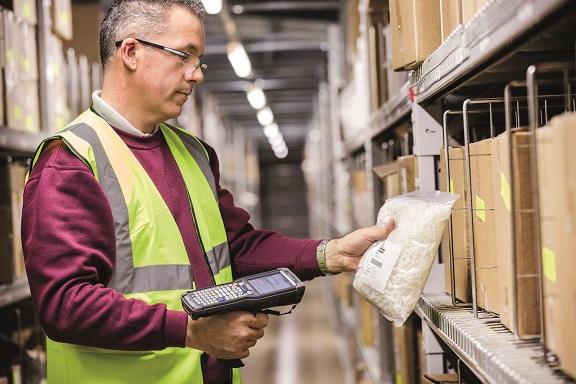
We have seen how Industry 4.0 is transforming manufacturing processes, but how is it impacting the supply chain, asks Scott Fawcett*.
In recent years, we have seen the establishment of the fourth industrial revolution through the development of smart factories, automated and digitised manufacturing processes and smart data. But, how is Industry 4.0 impacting the supply chain? In today’s world, the supply chain is a multi-faceted ecosystem, integral to the productivity and efficiency of a business. With product development, manufacturing and distribution networks all contributing to this integrated chain, it is all too easy for one weak link to break the chain. Manufacturers can future proof their businesses through the installation of a digitised and fully integrated supply chain network, reaping the benefits through enhanced customer service, flexibility, efficiency and cost-savings for many years to come.
Manufacturers must respond now
There is simply no time to waste when it comes to bringing the supply chain online and up to date. Manufacturers who fail to respond to this risk being left behind as competitors strive to remain one step ahead of this revolution. This has been stressed in a recent study by Pricewaterhouse Coopers (PwC) on the rise of Industry 4.0[1]. The study revealed that a third of companies surveyed have already started to digitise their supply chains, and 72% of respondents expect to do so in the next five years.
Forward-thinking manufacturers can expect annual efficiency gains of 4.1%, whilst boosting revenue by 2.6% a year. [2] This transition to a digitised network will require integrated planning and execution systems, logistics visibility, autonomous logistics, smart procurement and warehousing, spare parts management and advanced analytics. Though not a small undertaking logistically or financially it is clear that manufacturers that embark on this change will reap the benefits.
Establishing a transparent ecosystem
Collaboration is key. For the majority of manufacturers, there will be a number of suppliers feeding into the supply chain ecosystem at any given time so it is essential for all parties that the network is transparent and works collaboratively. A lack of clarity can mean that links and relationships can break down and disrupt the efficiency of the process. Complete transparency enables businesses to not only respond to problems in real time but also to anticipate any issues and respond to them ahead of time.
As a means of ensuring supply chain visibility, companies must employ effective and streamlined implementation of a “track and trace” (T&T) system. Two years ago, Essentra Components launched the SO99 demand planning platform in EMEA and will shortly be rolling this system out in the Americas. This platform is an aggregated global demand plan for all vendors, providing transparency across the entire business, improved response to the customer and ultimately a more efficient and dynamic manufacturing footprint.
Driving efficiencies
The ultimate end goal of digitising and creating a fully integrated supply chain network is to improve productivity. Not only will companies be able to reap the financial rewards of an efficient supply chain but customers will also benefit from improved turn-around times as businesses are able to adapt and respond to customer demands in real time.
The creation of smart machines, linked to each other and to the cloud, ultimately speeds up set up times and installation processes, driving efficiencies in production whilst also reducing costs. By linking these smart machines to the cloud, process engineers are able to access machines remotely, diagnosing and resolving problems more quickly, ensuring the machines are back up and running in the shortest time possible. The quick exchange of information boosts the agility and responsivity of the entire chain.
There is no quick fix to investing in the digitisation of the supply chain network but manufacturers wanting to compete on a global scale must begin implementing a digitised supply chain network.
[1] PWC, Industry 4.0: Building the digital enterprise https://www.pwc.com/gx/en/industries/industry-4.0.html?_ga=2.34945633.1…
[2] PWC, Industry 4.0: Building the digital enterprise https://www.pwc.com/gx/en/industries/industry-4.0.html?_ga=2.34945633.1…
http://www.essentracomponents.com/en-gb
*Scott Fawcett is Divisional Managing Director, Essentra Components